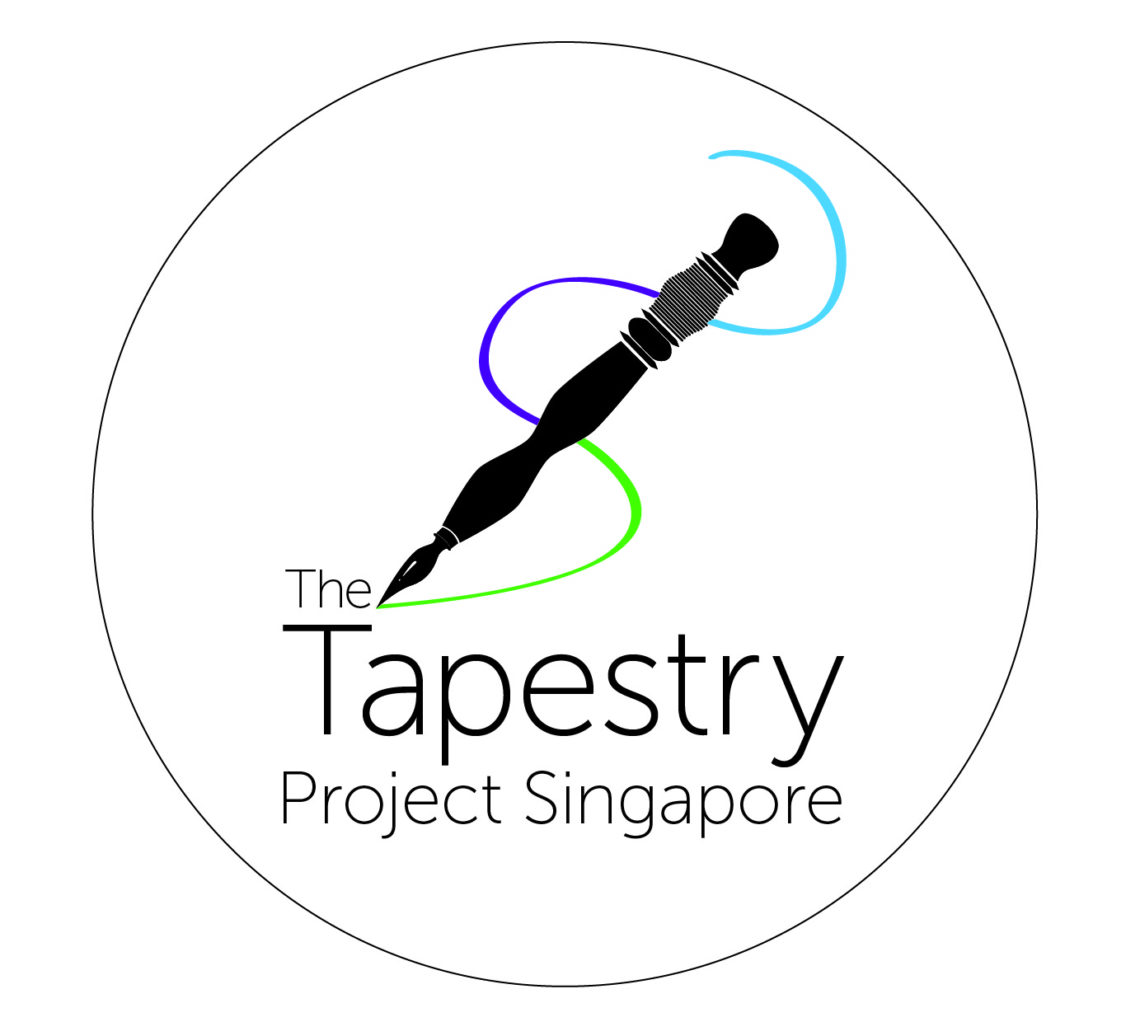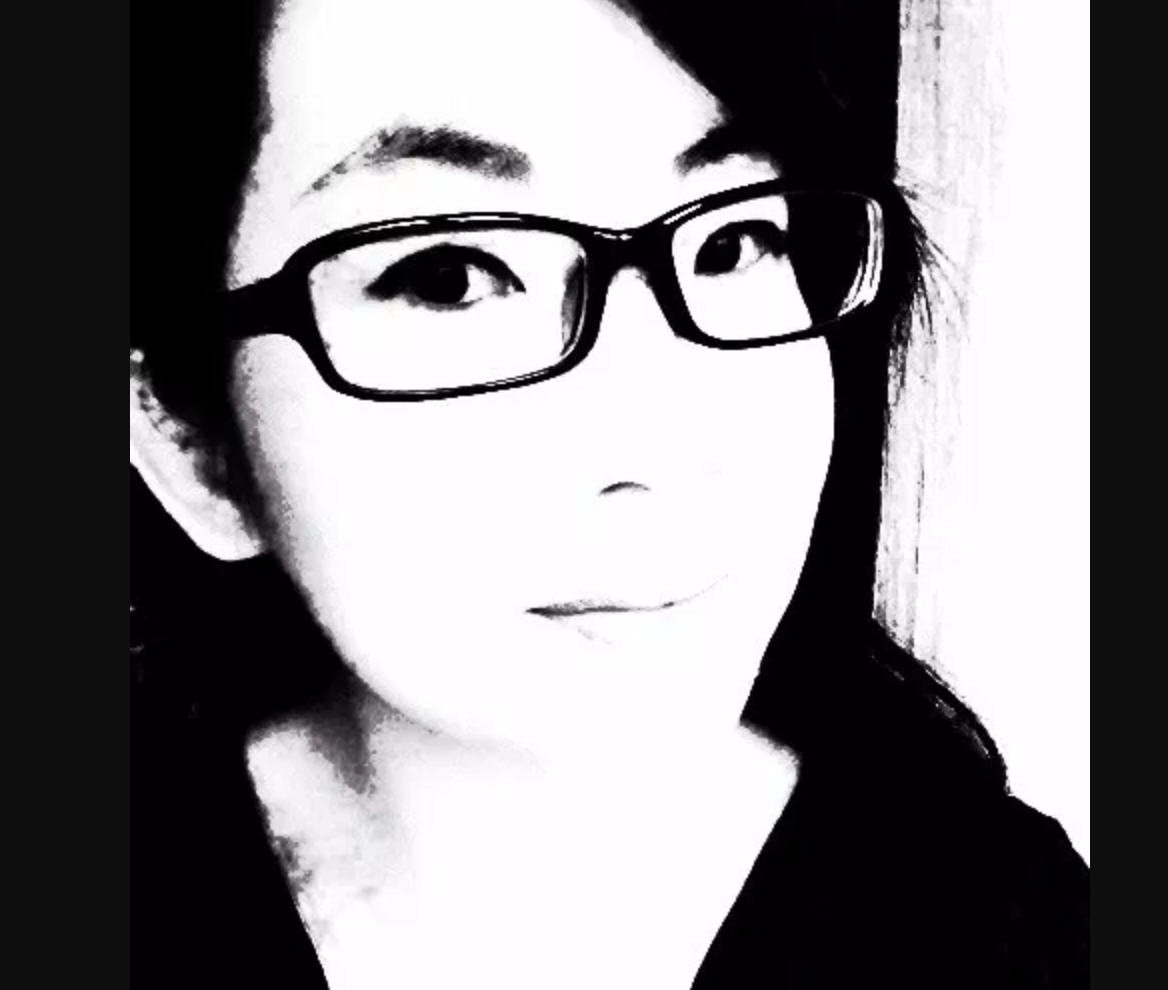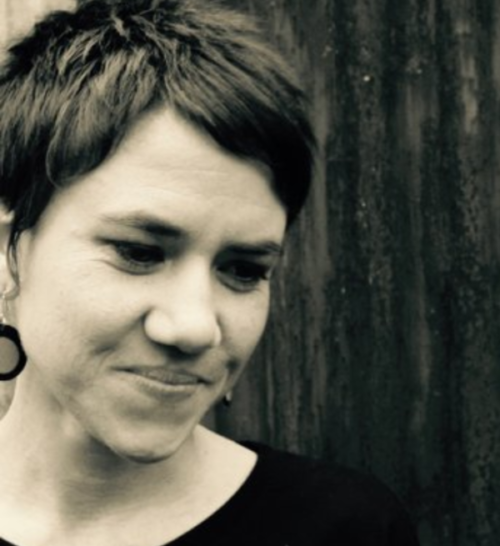
Nicole K: On Finding a Voice – The Tapestry Project
 Nicole K is a Singaporean writer and the founder of The Tapestry Project, a mental-health advocacy organisation. She was one of a handful of students from an arts college in Singapore who came to Perth for the AAWP conference. There were five or six concurrent sessions, and I chose the Singaporean writers one because I wanted to know what sort of writing was coming out of the former British colony; one where the Chinese settlers are the main ethnic group and English remains the official language. I really related to the stories written by her peers —a mix of cosmopolitan locals and expat writers— about mistaken identities in the post-colonial world. Nicole’s story wasn’t specifically about the complexity of cross-cultural identities in the (post?) post-colonial world, but it was about being a stranger in a strange world. Her piece moved me to tears. She could only whisper, due to vocal cord paralysis but her voice is one of the most powerful ones I’ve ever heard.
Nicole K is a Singaporean writer and the founder of The Tapestry Project, a mental-health advocacy organisation. She was one of a handful of students from an arts college in Singapore who came to Perth for the AAWP conference. There were five or six concurrent sessions, and I chose the Singaporean writers one because I wanted to know what sort of writing was coming out of the former British colony; one where the Chinese settlers are the main ethnic group and English remains the official language. I really related to the stories written by her peers —a mix of cosmopolitan locals and expat writers— about mistaken identities in the post-colonial world. Nicole’s story wasn’t specifically about the complexity of cross-cultural identities in the (post?) post-colonial world, but it was about being a stranger in a strange world. Her piece moved me to tears. She could only whisper, due to vocal cord paralysis but her voice is one of the most powerful ones I’ve ever heard.
What are you working on at the moment? I’m working on surviving grad school! Haha! But jokes aside, I run a not-for-profit online community magazine, The Tapestry Project SG. Sadly, this has taken a back seat in the past couple of months because I’m recovering from vocal cord paralysis which was a complication resulting from previous surgery. I hope to resume things once I’m better!
I was blown away by your piece at the AAWP and how you described your harrowing hospital experiences with brutal honesty. It really moved me. I feel rather self-conscious for using so many clichés but there is no other way to succinctly describe how I responded to your writing. Now that I’ve written my fan-mail, where can others access your writing?
Aww… You’re too kind! Yeah. I didn’t expect to still be emotionally affected by my material since I had written the piece months ago. I thought I had enough emotional distance from it haha. But I guess some memories contain stronger emotions than others. I realised that writing demands a fair amount of vulnerability and emotional honesty, even for fiction pieces.
I’m still exploring my own writing “voice” at the moment. But if anyone fancies a read of what I’ve been through with depression, bits of my journey can be found on Tapestry.
I wanted to turn my life challenges into something positive for the community; for others like me.
I’m not at all familiar with contemporary Singaporean culture but I do know that in traditional Chinese culture, mental illness is a taboo and there’s been research on Asian-American women specifically and mental illness. I remember reading research on Asian-American women a while ago about how depression often manifests as physical pain because of the social taboos. A quick Google search came up with this article about the stigma of mental health issues in Asian families. How challenging was it to set up Tapestry? It’s such an impressive feat! Yes, there’s this attitude of “saving face”– to portray a certain image of ourselves to the world such that it reflects well on the family. This is becoming less prevalent now though. But when I was first diagnosed with depression in 2006, I felt a lot of pressure to keep it under wraps and not “disgrace” the family. I felt I had somehow let them down and they’d be ashamed of me for being ill. It was internalized stigma, and irrational on hindsight.
I think we’ve all learnt how to communicate better over the years. Therapy and medication were lifesavers for me as well. Tapestry was the outcome of that healing journey. I wanted to turn my life challenges into something positive for the community; for others like me.
 Are you part of the generation that went through school after the introduction of the Mother Tongue Policy? If so, how fluent are you in Chinese? Ashamedly I was really poor at Mother Tongue. I was so terrible at it that I was sent for what the teachers called “Chinese cultural camp” during the holidays. It was three days of being saturated in all things related to Chinese culture—videos, worksheets, debates, drama. I was quite stressed out and overwhelmed as a 17-year-old. But I did enjoy the videos on how certain Chinese idioms came about. Knowing context and history made me appreciate the language a bit more.
Are you part of the generation that went through school after the introduction of the Mother Tongue Policy? If so, how fluent are you in Chinese? Ashamedly I was really poor at Mother Tongue. I was so terrible at it that I was sent for what the teachers called “Chinese cultural camp” during the holidays. It was three days of being saturated in all things related to Chinese culture—videos, worksheets, debates, drama. I was quite stressed out and overwhelmed as a 17-year-old. But I did enjoy the videos on how certain Chinese idioms came about. Knowing context and history made me appreciate the language a bit more.
But I think, like all languages, you have to keep hearing it and speaking it to get better. My parents spoke mostly English to me and our dialect is Cantonese, haha. So there goes Chinese fluency!
What made you decide to undertake the MA? Were you writing before you started your degree? To be honest I’ve always felt inadequate about my own writing. I don’t see myself as a writer. I enrolled for the programme because I wanted to be better grounded in writing techniques so that I can facilitate workshops better for others. (I run a social enterprise that conducts journaling workshops for mental wellbeing – it’s part of Tapestry, so whatever I earn from those workshops get channeled to running the online mag.)
Do you have a writing routine? If so what does it look like? I’m still experimenting with that. But I find that I write better in the wee hours of morning.
Who are your favourite writers? At the moment, David Sedaris! I enjoy his honesty and wry sense of humour. I also enjoyed Mitch Albom’s Tuesdays with Morries – it was the first book I bawled over.
Your favourite journey? I wanted to give a profound answer to this but somehow my mind went straight to recalling that one week holiday with my husband in Paris. Haha. I think it’s largely because it was my first time being in a country that did not have English as their first language. So it was all very new and intimidating. But we wanted so much to see the museums and architecture! We psyched ourselves up and tried to learn as much French as possible to help us get by (we forgot nearly all the phrases we learnt by the time we arrived).
The Paris we experienced was so different from what we were warned about, like how Asians were usually ignored and denied service etc. But people were so welcoming and warm towards us! We initiated our conversations in our halting French, so maybe they appreciated that or took pity on us haha. Or maybe we were just very lucky, and that the French are actually a misunderstood lot! This journey has taught me the importance of speaking another person’s language, both literally and figuratively; to write not just for ourselves, but with the reader in mind. And stereotypes exist to be challenged! I apply this mindset to my work in mental health advocacy, which is also the heart of Tapestry’s mission.
What’s next for you? I have a workshop coming up in the middle of the year, as part of the country’s reading movement. Very excited about that! So right now I’m focusing my energies on making a full recovery.
If you are experiencing mental health issues or suicidal feelings contact your local crisis support helpline or emergency service.
Australia: Lifeline on 13 11 14 or BeyondBlue 1300 224 636. If it is an emergency please call triple-0.
International: https://www.iasp.info/resources/Crisis_Centres/



One Comment
Katrina Kell
Another beautiful interview, Emily Sun. I was deeply moved by your honesty, Nicole, and how your journey of healing from depression culminated in the mental health advocacy work you’ve been doing with The Tapestry Project in Singapore. I also love the message you share in your Ten Spoons video clip 🙂